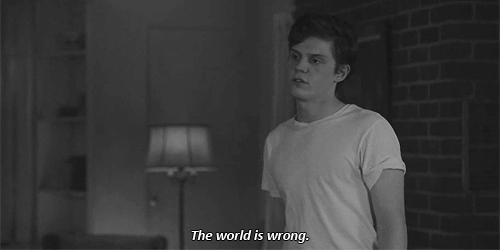 |
| (Diogenes was a philosopher who went around holding a lamp "looking for an honest man") |
According to Locke, people are born as blank tablets and it is the job of societal institutions to write the important things one should remember on these slates. This idea later lead to the separation of church and education in France, since the Church began to have too much influence on what was written on people’s tablets.
The philosophes are much like the progressivists, who also consisted of a small group of people who believed their ideas were better than everyone else’s. However, the progressivists appear around three to four hundred years after the philosophes. How did the philosophes represent progress? Well, during the Renaissance scholars looked toward Greece and Rome to re-build the glory that once existed and re-use the ideas of past philosophers and thinkers. However, during the Enlightenment, philosophers, such as the philosophes, were thinking of their own ideas instead of looking back at antiquity. Instead of rebuilding what once was, they were building upon the foundation that Greece and Rome laid.
Philosophes also had a more pessimistic view than thinkers of the Renaissance. During the Renaissance, the individual was believed to have great potential. On the other hand, philosophes had the pessimistic view that everyone else (society and the people) sucked, but they were optimistic that their own ideas could change and progress society for the better.

Additionally, the ideas of the philosophes would have been viewed as heretical during the Renaissance. For example, many philosophers leaned toward secularism (some were even atheist). A philosopher, Voltaire, used inductive reasoning by observing that wars during the Renaissance arose due to religious intolerance and concluded that “religious intolerance lead to fanaticism and savage action.
 |
| Voltaire or Voldemort? |
The philosophies of the philosophes would later influence the French Revolution. This can be seen through the views of three men: Montesquieu, Voltaire, and Rousseau. Montesquieu believed in a separation of powers in government. Voltaire called for more civil and political liberties. And Rousseau wanted direct small scale democracies. Separation of powers within elite groups was believed to be an improvement on absolutism. Notice, the Montesquieu wanted separation within elite groups rather than the “people.” As I stated previously, the masses were believed to be unable to reach enlightenment and were too easily influenced. Much like a dog, they would follow whatever a leader tells them to do.

On the other hand, elite groups had a my way or the highway attitude. This would result in a lot of conflict. This can be seen in Voltaire’s pessimistic attitude that “the best one could hope for in the way of government was a good monarchy, since human beings are very rarely worthy to govern themselves.” Volatire’s ideas could be seen as a branch of deism. He saw God as “the great clock maker.”
starts the machine, the world, and allows it to run on its own, seen in our free will.
Philosophes had an opinion on every aspect of life. These ideas then turned into action through their influence in society.
No comments:
Post a Comment